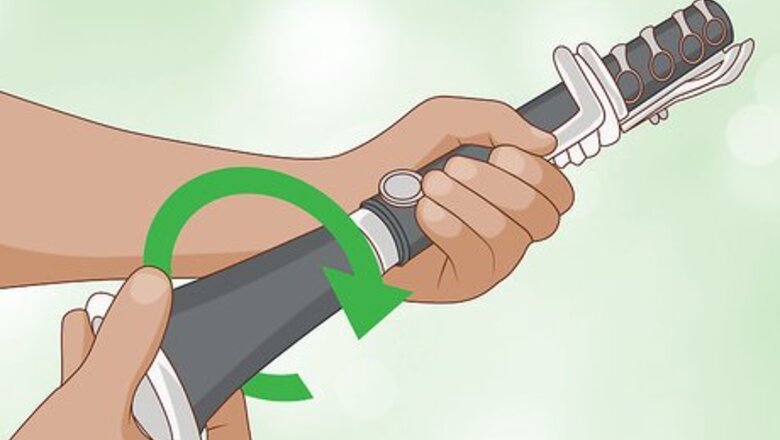
views
Your instrument isn't put together properly.

Make sure that your clarinet is put together correctly. Depending on the type of clarinet you play, there are usually several sections that connect together with cork tenons. You should ensure that mouthpiece, barrel, upper and lower joints, and bell fit together properly. If you are a new player, make sure that the upper and lower joints are situated properly for your hands. The upper joint is for your left and should be on your left side, and vice versa with your right hand and your lower joint.
Your reed isn't moist.

A dry reed could be the culprit in your clarinet squeaking. Your reed should be firm, but not hard as a rock. If your reed is new, it might need some extra time soaking in water to get the proper amount of moisture. Your reed also needs to be kept at the right moisture level so it is easy to work with. Keep it in a special box that controls environmental changes.
Your reed is in the mouthpiece at the wrong angle.
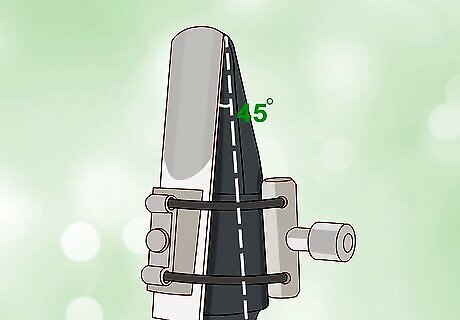
Place your reed in the mouthpiece at a 45-degree angle. Only a narrow opening should remain between the reed itself and the mouthpiece to make the best sound possible. Ask your instructor if you are having trouble, or if you are not sure if the angle is correct. This can be a lesson of trial and error.
Your clarinet has loose screws.

Even the smallest of screws can hinder your playing ability. Some are hard to see, so do a thorough visual examination to determine any culprits. If you do detect a loose screw, find a screwdriver that fits and screw it back in. Be very careful that you do not strip the screw. If you cannot find a properly fitting screwdriver, you may need to visit your local music store.
You're biting down on the mouthpiece.
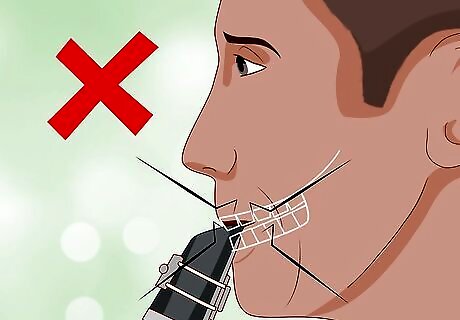
Biting on the mouthpiece may lead to squeaking. You may be clamping down too hard with your top teeth, biting into the reed with your bottom teeth, or just applying too much pressure overall, which isn’t good for your teeth or the reed. Try to loosen up a bit and relax your neck and jaw. EXPERT TIP Dan Hickey Dan Hickey wikiHow Staff Writer Dan Hickey is a Writer and Humorist based in Chicago, Illinois. He has published pieces on a variety of online satire sites and has been a member of the wikiHow team since 2022. A former teaching artist at a community music school, Dan enjoys helping people learn new skills they never thought they could master. He graduated with a BM in Clarinet Performance from DePauw University in 2015 and an MM from DePaul University in 2017. Dan Hickey Dan Hickey wikiHow Staff Writer "To alleviate excess pressure on the reed, let your lower jaw relax forward gently instead of biting upward into the reed. This lets the reed vibrate freely and changes your leverage on the mouthpiece, meaning you'll squeak less, have an unforced tone, and have more control over altissimo notes."
Your embouchure is bad.
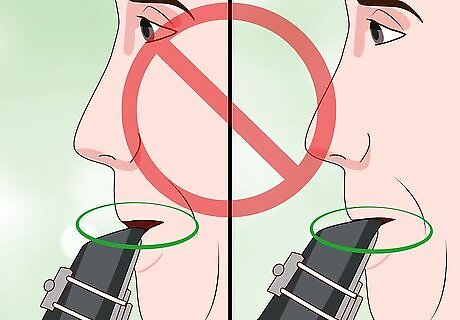
Avoid putting too much or too little of your mouth on the mouthpiece. You may not be taking in enough mouthpiece (thus not giving the reed enough room to vibrate), or you may be taking in too much. Adjust your mouth until you hear an improvement. You should also make sure your mouth is forming an airtight “pouch” around the mouthpiece.
Your tongue placement is poor.

Practice good tongue placement, or "tonguing." Wrong tonguing techniques can put too much pressure on the reed and cut off the airflow unevenly for too long, which can cause squeaks. Place the top of your tongue tip at the very tip of the reed, and practice this technique to see improvements.
You have poor mouth form.
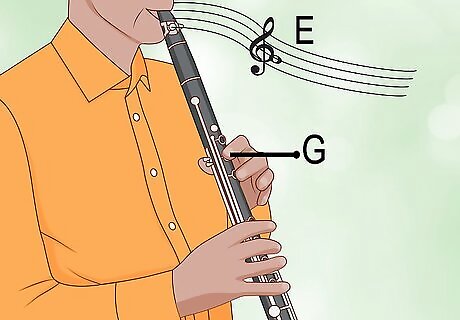
Make sure you are holding your mouth around the mouthpiece properly. To see if you have a correct mouth form, finger a high G (the one sitting on the line above the staff), and then hit the G# key. You should hear a clear altissimo E note.
Your hand positioning is causing the issue.

Experiment with hand positioning. Hand position can be a common issue if your fingers are small, or if you are a new player. Your fingers may not be large enough to cover the tone holes, they may not be able to support the weight of the instrument, or they might still be learning proper finger coordination. If you are a young child working with a bulky clarinet, consider Investing in a neck strap. A neck strap can transfer the instrument's weight off of the arms and onto the neck. This can allow you to relax and focus on practicing.
Your fingers are too small for your instrument.
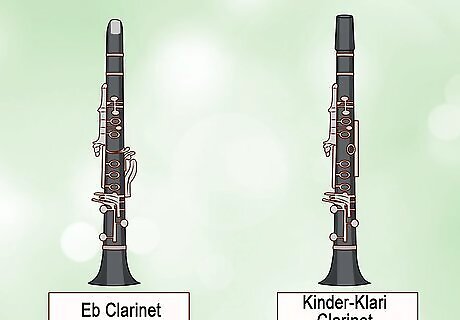
Research smaller clarinets. If your fingers are still too thin or too short, consider purchasing a smaller clarinet. Some varieties of small clarinets include the Eb clarinet and the Kinder-Klari clarinet. Some brands also sell clarinets with plateau-style keys so that even small fingers can close them.


















Comments
0 comment